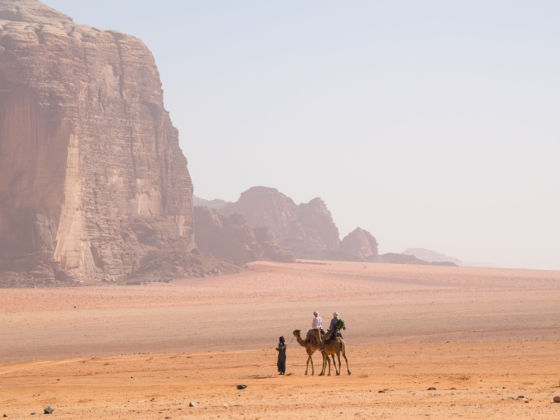My irritation with Christie is unfair; I have no right to project my fears onto her. This is my mantra in the desert of Wadi Rum. The lines I repeat over and over, rolling through sand dunes on the back of a camel.
But each time I tell myself to let my anger go, a snapshot flits through my head. Every slur digs into my skin. The man who grabbed my hair in an alleyway, yanking on it hard. The idiots who squeezed my ass on a crowded bus, at a stoplight, in the corner of a market. The man on the Metro in Paris who cupped my breasts and then gave me a thumbs-up sign. The boys in Jerusalem who run past and smack me, shouting and laughing like it’s all supposed to be some sort of game. I dig my fingers so tightly into my palms that my knuckles turn white, my nails leave four little red crescent welts on the palm of each hand.
